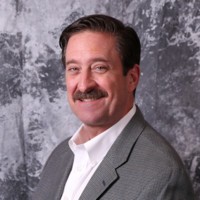Recently I had the opportunity to listen to a recording of Eli Pariser speaking at TED, l regarding what he calls Filter Bubbles. This refers to the filters we establish and or that are established for us to filter information.
Many of the readers of this and other blogs use RSS Feeds as a way to create lists of what we feel is relevant content so that we don’t have to listen to or read all the other “stuff” that is published. I know I was thrilled when I learned of RSS feeds and ways I can customize my home page so that I am presented with what’s interesting to me, not what is interesting to someone else.
In fact I was quite proud ![]() of the filters I had put in place so that I could focus on my interests. I had a teacher one time who shared that she did not listen to the news because it was always bad news. (Fear does capture and keep our attention after all). Her thinking was that by not paying attention to this negativity she could focus on her own state of mind and keeping positive and that her life would work better. Sort of like what Earl Nightingale referred to as the Greatest Secret, “We become what we think about most.”
of the filters I had put in place so that I could focus on my interests. I had a teacher one time who shared that she did not listen to the news because it was always bad news. (Fear does capture and keep our attention after all). Her thinking was that by not paying attention to this negativity she could focus on her own state of mind and keeping positive and that her life would work better. Sort of like what Earl Nightingale referred to as the Greatest Secret, “We become what we think about most.”
Listening to Pariser talk about this phenomenon led me to a “rethink” on my part. He pointed out that when we create and live in our own filters we gradually lose the common conversation that has been prevalent throughout most of history. (He also frighteningly pointed out the filtering that our services such as Facebook, LinkedIn and Google do behind the scene without our consent on our behalf). We may not have always agreed with each other; but we were for the most part in the same conversation. This in turn led to a conversation I have had over the years with my Dad.
In the US we keep stressing Diversity. If you look at the root of the word it is to divide. Perhaps instead of focusing on diversity we could instead focus on Tolerance? Perhaps we can look for and embrace what we share in common while tolerating what is different; kind of like we tolerate crazy aunty Nan with the blue hair and the knee socks that keep her feet warm in July.
What I have done in response to Eli’s talk is I have broadened my filters to include material that I might have avoided earlier. And now at least once a month I pick up a magazine from way outside of my field or areas of interest. While I still often scratch my head and ask, “Do they really think like that?” I am also often sparked with a new idea or point of view that is valuable. For example, I recently have been invited to address an audience based on material that was seen on LinkedIn. Two years ago I would not have participated in the way I do now. But by stepping out of my filter about social media and the risks, I have been able to broaden my network and in some small way my influence.
Are your filters too tight?
Are you limiting the ideas that get through?








Hi John,
There is no question that we filter information. We accept the information that fits into our world and reject that which does not. Talk to a Christian about Heaven and Hell and it won’t be much trouble convincing them of their existence. Talk to an atheist and it’s a major uphill battle. Talk to someone who believes in life on other planets and tell them you saw a flying saucer and they are ready to believe you. Tell the same story to a doubter and they will pick your story apart.
Years ago I was a subscriber to Time Magazine. I read it faithfully for 5 or 6 years. I became aware that my thoughts were being guided by what I was reading, canceled Time Magazine and started reading Newsweek. Suddenly my perspective shifted. The new beliefs identified through my new source of information began to change my perspective of the world around me. A new set of filters created a new belief system.
But no matter how hard you try, you cannot turn off your filters entirely. It’s impossible to look at every side of every issue with total openness and honesty. About the best you can hope for is to be aware of your filters and use that awareness to see new perspectives.
Dave you are right,
The filters are always present and we have to be aware of them. I am not sure who said it but there is an old saying the difference between who we are today and who we will be in five years are the books we read and the people we hang out with. We could amend that to we will be influenced by the filters we engage.
Take Good Care,